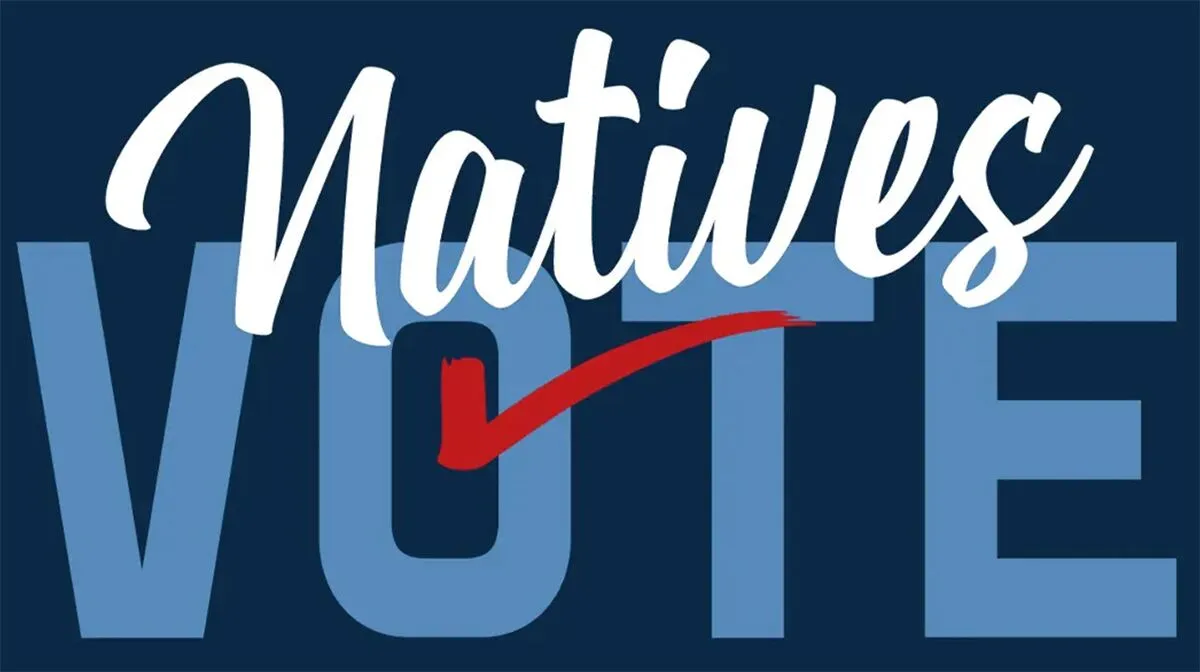
- Details
- By Neely Bardwell
Native Vote 2024. With just six weeks to go before Election Day, Advance Political Leadership Action Fund (Advance), the first and only national Native-led organization working to build a complete ecosystem approach to political power building in Native communities, announced its first-ever endorsement of any non-Indigenous candidate for office.
Anathea Chino (Acoma Pueblo), Co-Founder and Executive Director of Advance, says the Harris-Walz ticket is committed to Indian Country. Advance Political Leadership Action Fund is the organization's 501(c)4 project helping to elect Native leaders at all levels of public office.
“While this isn’t the first time a national ticket has shown an understanding of and commitment to Native peoples, this moment represents a historic shift with a deeper investment in elevating Native leaders and communities,,” said Chino. “Gov. Walz’s partnership with Lt. Governor Peggy Flanagan and legislative record in Minnesota is proof he is committed to the unique status of Tribal Nations and our right to existence, self-governance, and self-determination. His inclusion on the presidential ticket is a game changer.”
Minnesota Governor Tim Walz and Lieutenant Governor Peggy Flanagan (White Earth Ojibwe) were the first state executive leaders to visit all eleven tribes located in Minnesota. Since their election in 2018, Walz and Flanagan, a co-founder of Advance, have established a significant legislative record of greater opportunities and support for Native communities, including requiring state agencies to create and implement tribal consultation policies and requiring agencies to appoint tribal-state liaisons and mandating state agency leaders and employees to attend tribal-state relations training.
Following a longstanding conversation surrounding the Minnesota state flag and seal that had racist Native imagery, Walz and Flanagan changed the flag and included the Dakota name for the state, "Mni Sota Makoce” on it. They also saw the return of Upper Sioux State park to the Sioux community.
This election season, the Native vote could be the deciding factor in a Harris-Walz victory in several key battleground states, including Arizona, Michigan, Nevada, and Wisconsin. In 2020, Native American voters helped elect President Biden in each of these states, demonstrating the impact that Native voters can have in very tight races where their population is greater than the margin of victory.
So far this year, Advance has endorsed 42 Native leaders running for federal, state, and local offices across 13 states in 2024, representing its largest endorsement slate ever. This election season, Native Americans, Alaska Natives, and Native Hawaiians are making history like never before with 226 candidates running in 25 states. While 348 Native Americans currently hold elected office in the United States, more than 17,000 are needed to reach representational parity in elected office based on population.
“This is a historic opportunity for Native peoples to participate in an election that can bring about a better Indigenous future, one that offers greater opportunities, visibility, and support for Native communities. A vote for Kamala Harris and Tim Walz is a vote for Peggy Flanagan to become the nation’s first Native woman governor, which could set a powerful precedent for Native representation in Minnesota and across the country. Her leadership would further elevate the concerns of Native communities, creating more opportunities for Indigenous voices to influence policy at the highest levels,” says Chino. “It is proof that inviting movement leaders and activists from all walks of life into the halls of power to develop shared strategy ensures we all win together.”
More Stories Like This
Native News Weekly (August 25, 2024): D.C. BriefsNavajo Nation Mourns the Passing of Former Vice President Rex Lee Jim
Deb Haaland Earns Endorsement From Communications Workers of America Local 7076
University Soccer Standout Leads by Example
Two Native Americans Named to Democratic Congressional Campaign Committee's“Red to Blue” Program
Help us defend tribal sovereignty.
At Native News Online, our mission is rooted in telling the stories that strengthen sovereignty and uplift Indigenous voices — not just at year’s end, but every single day.
Because of your generosity last year, we were able to keep our reporters on the ground in tribal communities, at national gatherings and in the halls of Congress — covering the issues that matter most to Indian Country: sovereignty, culture, education, health and economic opportunity.
That support sustained us through a tough year in 2025. Now, as we look to the year ahead, we need your help right now to ensure warrior journalism remains strong — reporting that defends tribal sovereignty, amplifies Native truth, and holds power accountable.
 The stakes couldn't be higher. Your support keeps Native voices heard, Native stories told and Native sovereignty defended.
The stakes couldn't be higher. Your support keeps Native voices heard, Native stories told and Native sovereignty defended.
Stand with Warrior Journalism today.
Levi Rickert (Potawatomi), Editor & Publisher


